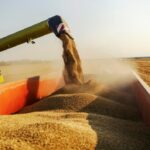Farm labor in 2025 is entering a new phase as governments introduce updated rules to ensure safer working environments and fairer treatment of agricultural workers. These changes come in response to long-standing concerns over labor exploitation, hazardous conditions, and the need for stronger legal protections for farmworkers across the country.
Among the key developments is the introduction of stricter rules governing the employment of seasonal and migrant workers under the H-2A visa program. These updates emphasize transparency in job contracts, fair wage enforcement, and stronger protection against retaliation. Employers are now required to disclose all third-party recruiters and provide workers with detailed information about their rights and responsibilities before employment begins.
Wage regulations have also been revised to better reflect the cost of living and to ensure workers are paid fairly for their labor. The new policies require that any wage updates take effect immediately, preventing delays that previously affected pay rates during peak seasons. This is expected to benefit thousands of farmworkers who depend on seasonal contracts for their livelihoods.
Safety standards are also seeing major improvements. With rising concerns about heat stress, equipment-related injuries, and long work hours, the new rules mandate that farms implement comprehensive safety plans. These include providing shaded rest areas, clean drinking water, and regular breaks during extreme heat. Additionally, there are updated requirements for the safe use of machinery, protective gear, and training programs to reduce injury risks on the job.
In response to these new mandates, agricultural employers are being encouraged to review and update their workplace policies. Farms must now keep clear records of employee hours, wages, and safety training to demonstrate compliance with labor laws. While the adjustments may require an initial investment in equipment and administrative support, they are expected to improve worker morale, reduce turnover, and enhance overall productivity.
Some states have gone even further by passing their own legislation to expand on these national regulations. These local laws focus on overtime pay, housing standards for farmworkers, and the establishment of labor boards to resolve disputes. Though not all measures have been universally adopted, the trend shows a growing emphasis on protecting those who play a vital role in the food production chain.
As agriculture continues to modernize, these new labor and safety standards represent a significant step toward more ethical and sustainable farming practices. For farmers and producers, staying informed and adapting early to these changes will be essential not only for legal compliance but also for building a resilient and respected agricultural workforce.
Join 'Farmers Mag' WhatsApp Channel
Get the latest Farming news and tips delivered straight to your WhatsApp
CLICK HERE TO JOIN






